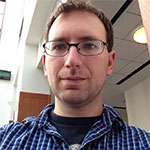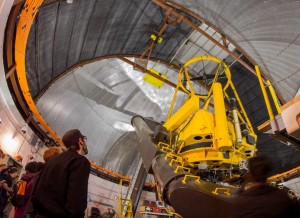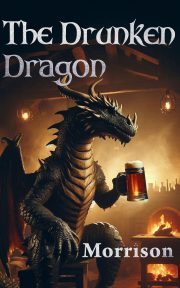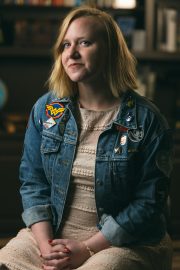Launch Pad Astronomy Workshop: A Reflection
by Andrew Liptak
 Two weeks ago, a group of writers descended upon the University of Wyoming in Laramie, Wyoming for the Launch Pad Astronomy Workshop. Founded in 2007 by author and scientist Mike Brotherton, the event is designed to “provide a “crash course” for the attendees in modern astronomy science through guest lectures, and observation through the University of Wyoming’s professional telescopes.
Two weeks ago, a group of writers descended upon the University of Wyoming in Laramie, Wyoming for the Launch Pad Astronomy Workshop. Founded in 2007 by author and scientist Mike Brotherton, the event is designed to “provide a “crash course” for the attendees in modern astronomy science through guest lectures, and observation through the University of Wyoming’s professional telescopes.
The Workshop is an intensive, eight-day boot camp for artists to get a good handle on how everything in space works. Days before the course began, we were sent an impressive list of what we would be covering: The scale of the solar system, seasons, science misconceptions, the electromagnetic spectrum, instruments, Kirchoff’s Laws and Spectra, Gravity, Isaac Newton, Johannes Kepler, Orbits, Exoplanets, supernovae, white dwarfs, black holes, galaxies, cosmology and more.
Practical, hands on activities likewise peppered the schedule: we learned how to look at spectra of heated gases, and how they relate to identifying stars. We went to the roof of one of the university buildings to look at telescopes (cloudy, unfortunately). We went to computer labs to hunt for planets (finding several!) and to process images from the Hubble Space Telescope. Afterwards, we trekked to Jelm Mountain to the Wyoming Infrared Observatory (WIRO), where we were able to punch in coordinates for stars, and take their temperature and distance.  Want to make a group of adult science fiction authors revert to excited 12-year-olds? Bring them to an observatory and let them push buttons. The most impressive part, however, was a simple walk in the dark at the top of Jelm Mountain. The West is known for it’s big empty skies, and splashed overhead was the Milky Way Galaxy, Mars, Saturn, and all of our neighborhood’s stars, not to mention a handful of satellites and meteors. Looking into the night skies after several days of instruction opened our eyes: we understood what we were seeing before us, looking not as casual admirers, but as students who knew a little about how everything worked above us.
Want to make a group of adult science fiction authors revert to excited 12-year-olds? Bring them to an observatory and let them push buttons. The most impressive part, however, was a simple walk in the dark at the top of Jelm Mountain. The West is known for it’s big empty skies, and splashed overhead was the Milky Way Galaxy, Mars, Saturn, and all of our neighborhood’s stars, not to mention a handful of satellites and meteors. Looking into the night skies after several days of instruction opened our eyes: we understood what we were seeing before us, looking not as casual admirers, but as students who knew a little about how everything worked above us.
Launch Pad boasts an impressive alumni list as well. Authors such as K. Tempest Bradford, Vonda N. McIntyre, Steven Gould, Nancy Kress, Jay Lake, Mary Robinette Kowal, N. K. Jemisin, Robert Sawyer, Genevieve Valentine, John Joseph Adams, Carrie Vaughn, Walter Jon Williams, Christie Yant, Jake Kerr, Linda Nagata, and many others are listed on the website, many of whom have since gone on to write stories incorporating what they learned into their stories. This year’s class was attended by Amy Casil, Geetanjali Dighe, Doug Farren, Susan Forest, Marc Halsey, Gabrielle Harbowy, Meg Howrey, Ann Leckie, William Ledbetter, Andrew Liptak (Myself), Malinda Lo, Sarah McCarry, E.C. Myers, Jenn Reese, Anne Toole, James Sutter, and Lisa Yee. I couldn’t ask for a better group of classmates, and I know that I’ve made a new group of friends whom I’ll be in touch with for years to come.
Throughout the week, I found myself thinking back to a historical figure from my own alma mater: Alden Partridge, who founded Norwich University in 1819. He valued practical, hands on learning, outside of the classroom. I’ve since found that learning opportunities such as Launch Pad have been invaluable resources for my own work, whether in the mountains of Wyoming, on the battlefields of Europe or on work retreats. These sorts of events break us out of our daily routine, put us in rooms with experts, and place us where we can do the work ourselves. This is what makes Launch Pad an exceptional experience for writers: we put our daily lessons to work, under the watchful eye of our talented instructors (Mike Brotherton, Andria Schwortz and Christian Ready), all with the aim of getting a good foundation in science, which will support and inform future work.
I’m very pleased with my experiences at Launchpad, and I’m proud to join an exceptional group of alumni who’ve gone through the program. Already, my classmates have begun to share articles about the latest telescope, mass ejections from the sun, and the latest planet that they’ve discovered on Planethunters.org. (Seriously, that site is addicting). I have no doubts that we’ll see some excellent stories from all of them, using what we learned during our week in Wyoming.
•••


